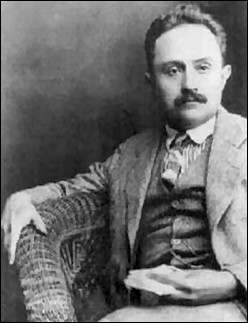
José Vasconcelos is often referred to as the founder of modern education in Mexico (Wood 2019). He was a prominent Mexican intellectual appointed as the first head of the Ministry of Public Education (Secretariat Educación Público, SEP) (Wood 2019, see also Hilton 1951 and Fernandez 2004). He was a controversial character in the development of Mexico, involving himself in radical political movements and suffering exile before returning to Mexico under Obregón to serve in the Ministry (Wood 2019). His actions before and during office help expand our understanding of political and radical support (or opposition) for education evolution and inclusion.
A philosopher and ardent supporter of the Mexican Revolution, Vasconcelos was a leader during the organization of social and cultural movements, providing structure and direction in movement for better education and representation of the arts (Hilton 1951). After fleeing the country for a time during the Revolution and unrest thereafter, Vasconcelos eventually returned to Mexico to serve in office under Alvero Obregón, the revolutionary and new president of Mexico (Hiton 1951; see also Wood 2019). After a time working as the rector of the National University, Vasconcelos turned away from his primarily administrative duties, creating the Ministry of Public Education and serving as the Minister from 1921 until 1924 (Hilton 1951; see also Fernandez 2004). During his time as Minister, he devoted his time to the improvement of primary education as well as the betterment of the quality of education being provided at all levels. He introduced the foundation that education instruction should first and foremost stem from participation in and outside of the classroom (Hilton 1951). His understanding of the plight of many Mexicans also led to his emphasis on technological schooling, similar to trade schooling, and courses taught on home economics, often advertised as “Escuelas Industriales para Mujeres” (later abolished in secessionist regimes) (Hilton 1951). Vasconcelos, a lover of the arts, also spearheaded a literature campaign, creating a diaspora of well known and classic literature into the hands of children and adults alike (Hilton 1951). In his teaching, he rejected the social hierarchies of old Mexico and embraced what he called the “cosmic race”, a combination of and representation of all races and cultures into one man, claiming it was integral to the solution to ending the racial hierarchy (Wood 2019).
Vasconcelos was one of many revolutionaries beginning to reject the historical Mexican caste system based on racial and cultural superiority (Hilton 1951). However, he is made distinct by his refusal to whole-sale reject many of the European influences represented in Mexico. Along with his desire to preserve the importance of classic literature, Vasconcelos was a devout Catholic and rejected the nationalist desire to remove Catholic influences from modern culture (Hilton 1951). His contributions, however, still mark the development of the Mexican education system, having created a foundation for the true value of academics and intellect as a citizen, open to all individuals.
Sources
Fernández, Tomás and Tamaro, Elena. “Biography of José Vasconcelos”. In Biographies and Lives. The biographical encyclopedia online [Internet]. Barcelona, Spain, 2004. Available at https://www.biografiasyvidas.com/biografia/v/vasconcelos.htm [Access date: March 3, 2022].
Wood, James A., and Alexander, Anna Rose, eds. Problems in Modern Latin American History : Sources and Interpretations. 162-166. Blue Ridge Summit: Rowman & Littlefield Publishers, 2019. Accessed March 3, 2022. ProQuest Ebook Central.
Hilton, Ronald. “José Vasconcelos.” The Americas 7, no. 4 (1951): 395–412. https://doi.org/10.2307/978353.
